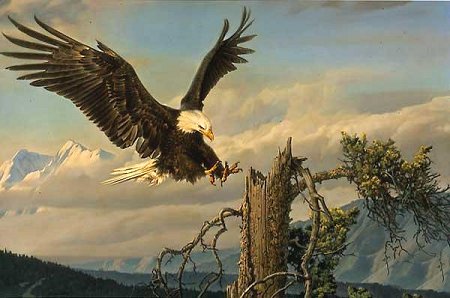
Bald Eagle
Learning theorist Clark Hull incorporated this need-produced concept of drive into an equation for motivated behaviour. In Hull's equation, the probability of a given behaviour is a function of three factors:
- the drive the organism experiences as a result of a need state
- the incentive, the value of the external stimulus that will reduce the need state, and
- habit strength, the organism's practice or past experience with, or ability to perform, the behaviour.
The Neobehaviourist Perspective
Hull's view of motivation is considered neobehaviourist rather than strictly behaviourist, because it relies on the operation of intervening variables like drive, incentive, and habit strength, instead of observable conditions and responses. Each intervening variable is assumed to be determined by an observable antecedent condition(a stimulus or influence). Likewise, the result of the interaction of the invtervening variables is assumed to be an observable, measurable aspect of behaviour.
Enthusiasm
To the woman who complained that riches hadn't made her happy the Master said, "You speak as if luxury and comfort were ingredients of happiness; whereas all you need to be really happy, my dear, is something to be enthusiastic about."
by: Anthony de Mello, SJ, One Minute Wisdom
No comments:
Post a Comment